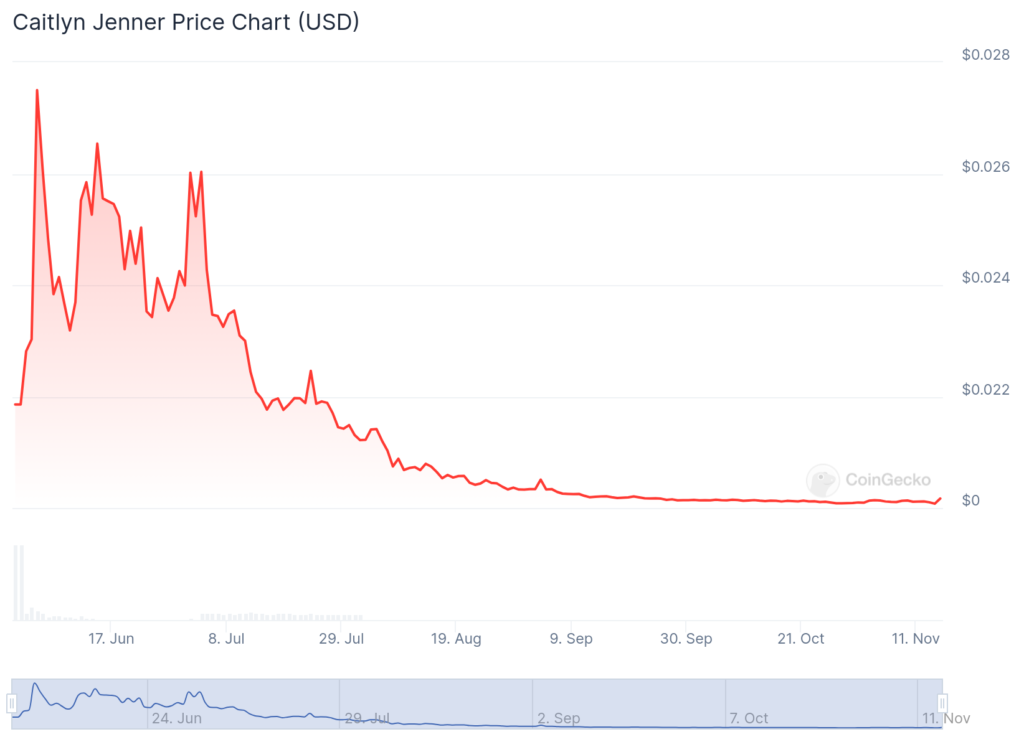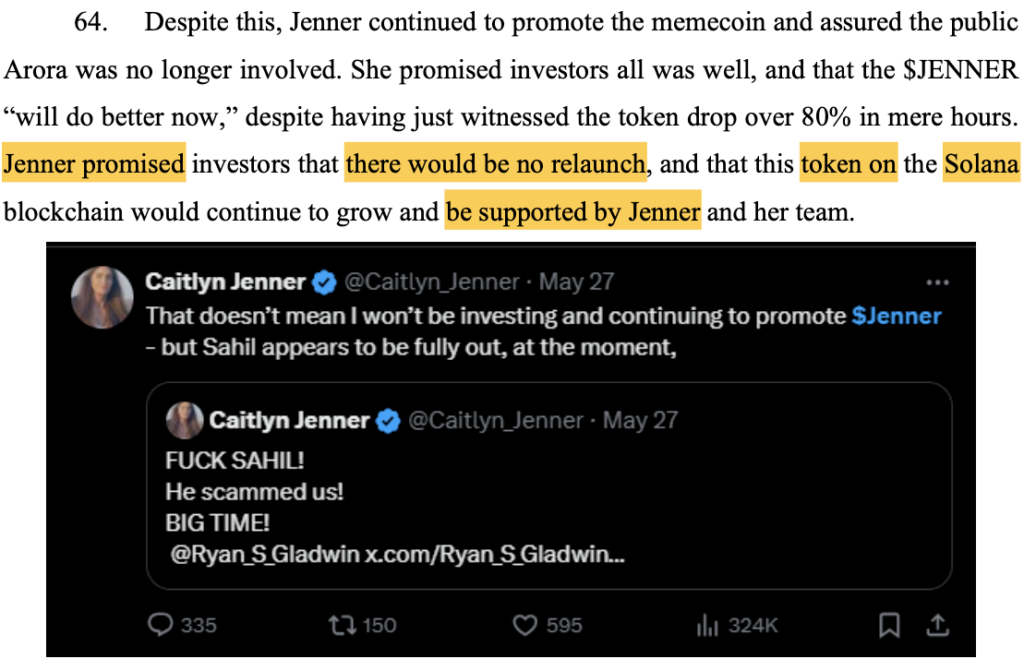A lawsuit filed on November 13 claims Caitlyn Jenner misled investors by marketing a “memecoin” as an unregistered security.

A proposed class-action lawsuit alleges that Caitlyn Jenner, a former Olympian, is marketing memecoins as an unregistered security on behalf of a number of individuals who have purchased the celebrity currency.
Naeem Azad and Mihai Caluseru, citizens of the United Kingdom and Romania, respectively, submitted the complaint to a federal court in California on November 13.
The complaint alleges that Caitlyn Jenner and her manager, Sophia Hutchins, “fraudulently solicited financially unsophisticated investors throughout the United States and abroad to purchase the unregistered securities.
They asserted that they had lost more than $56,000 as a result of purchasing Jenner on Ethereum and Solana, and they added that they would not have come to this conclusion “had it not been for the false and misleading statements and omissions made by Jenner.
According to the lawsuit, buyers “suffered significant damages” because they lacked information to assess the risk of investing, which they claimed Jennifer’s registration would have provided.
The Securities and Exchange Commission accused Caitlyn Jenner of “willfully failing” to register the token. Pump.fun, the creator of memecoin, first introduced Jenner to Solana users in May.
However, Caitlyn Jenner quickly became mired in controversy as she and other prominent personalities claimed that partner Sahil Arora “scammed” them. After that, she reissued the coin on the Ethereum platform.
The Ethereum token has practically lost all of its value since its debut due to its price reaching an all-time low on November 13 and its worth plummeting to $170,000 from a height of roughly $7.5 million. Additionally, according to CoinGecko, the trading volume for it during the course of the previous day was only $1.80.

Caitlyn Jenner appears to have almost completely abandoned the project; she is no longer actively promoting the memecoin, and she has left holders on the hook for significant losses,” the complaint stated. The likelihood of recovering these losses is extremely low.
The lawsuit alleges that Caitlyn Jenner began “touting price and market capitalization targets” for the Solana coin shortly after its introduction. After that, the market crashed when Arora, who was not named as a defendant, sold a significant portion of the token he owned.

The lawsuit asserted that this occurred because Jenner had a duty to warn investors about the exact risk when soliciting their purchases, a duty she willfully neglected to fulfill for her personal financial gain.
After that, Jenner relaunched the token on Ethereum, which Azad and Caluseru claimed had a negative impact on the value of the original Solana token. However, they claimed that Jenner had “instituted a 3% ‘tax'” on every transaction.
This was information that they claimed she “has never properly disclosed,” but it appeared to have “enriched Jenner tremendously. They asserted that this violated securities laws because they believed Jenner used the token’s earnings to pay for its listing on exchanges and to promise token buybacks, both of which the lawsuit claims did not occur and contributed to further losses.
In addition, the lawsuit claimed that Jenner “willfully omitted information” about her interactions with Arora and the value of her and other insiders’ JENNER holdings, which she allegedly benefited by acquiring “earlier and cheaper than the general public.
Additionally, Azad and Caluseru filed a lawsuit against Jenner, alleging securities and common law fraud, violations of securities legislation, and aiding and abetting fraud against Hutchins.
Jenner’s legal representatives did not immediately provide any information. Jenner’s website did not immediately respond to our request for comment. We were unable to get in touch with Hutchins for a comment.
